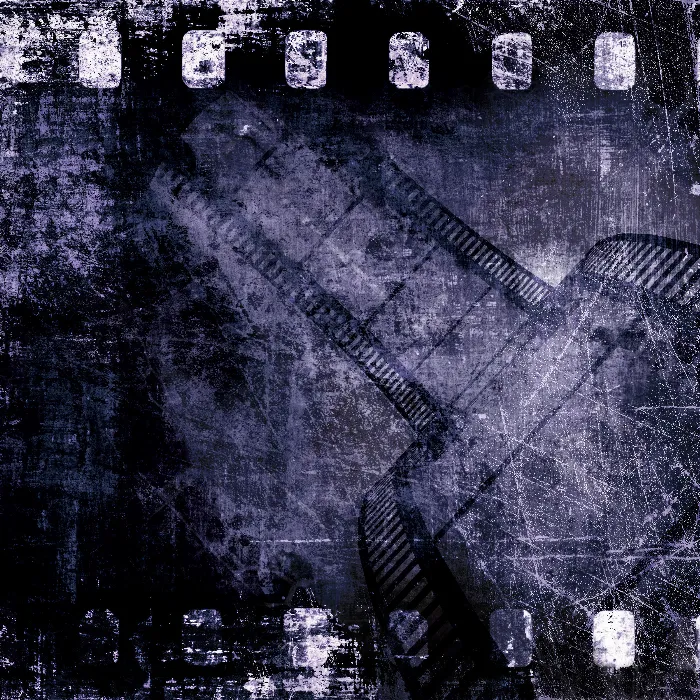After Effects offers a wide range of options to enhance and customize your footage. In this guide, you will learn how to apply various effects to create visual styles and how adjustment layers can help you organize your projects efficiently. Let's explore the basics of this fascinating software together.
Key Insights
- Effects in After Effects are similar to filters in Photoshop and can create visual changes.
- Applying effects often requires combining multiple filters to achieve the desired look.
- Adjustment layers allow you to apply effects to all underlying layers.
- You can use keyframes to create animations and achieve dynamic changes over time.
Step-by-Step Guide
Applying Effects
To apply an effect to your footage, there are several ways. First, select the layer to which you want to apply the effect. Then, go to the menu at the top and click on “Effect.” Here you will find various categories to choose from.
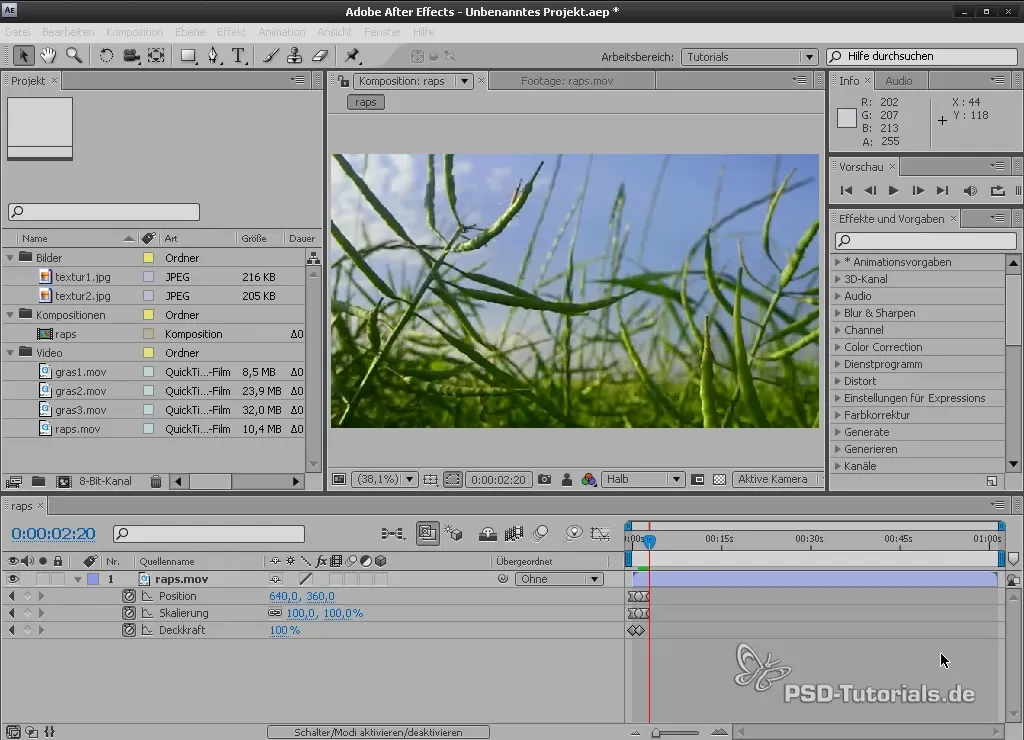
Alternatively, you have the option to search through “Effects & Presets.” For example, I type in “Blur” to get a selection of blurs. Select the fast blur and simply drag it onto your layer.
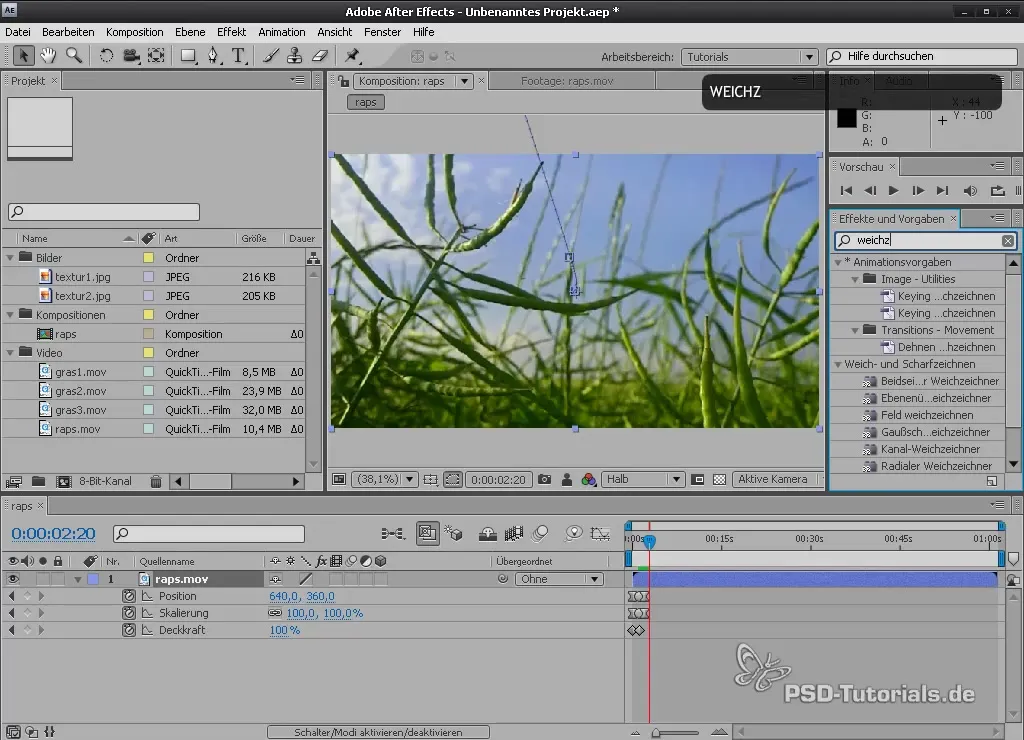
Once the effect is applied, the effects settings window opens, which can be toggled on or off at any time with the F3 key.
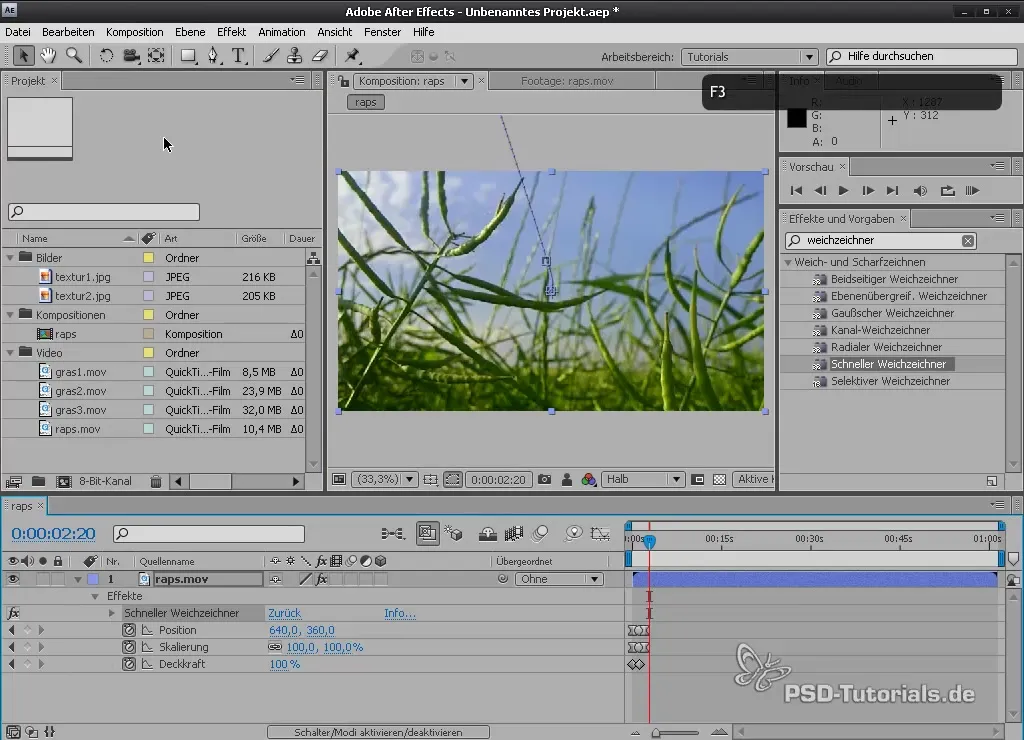
Here you can adjust the parameters of the effect. You have the option to regulate the strength of the blur and see these changes in the preview immediately.
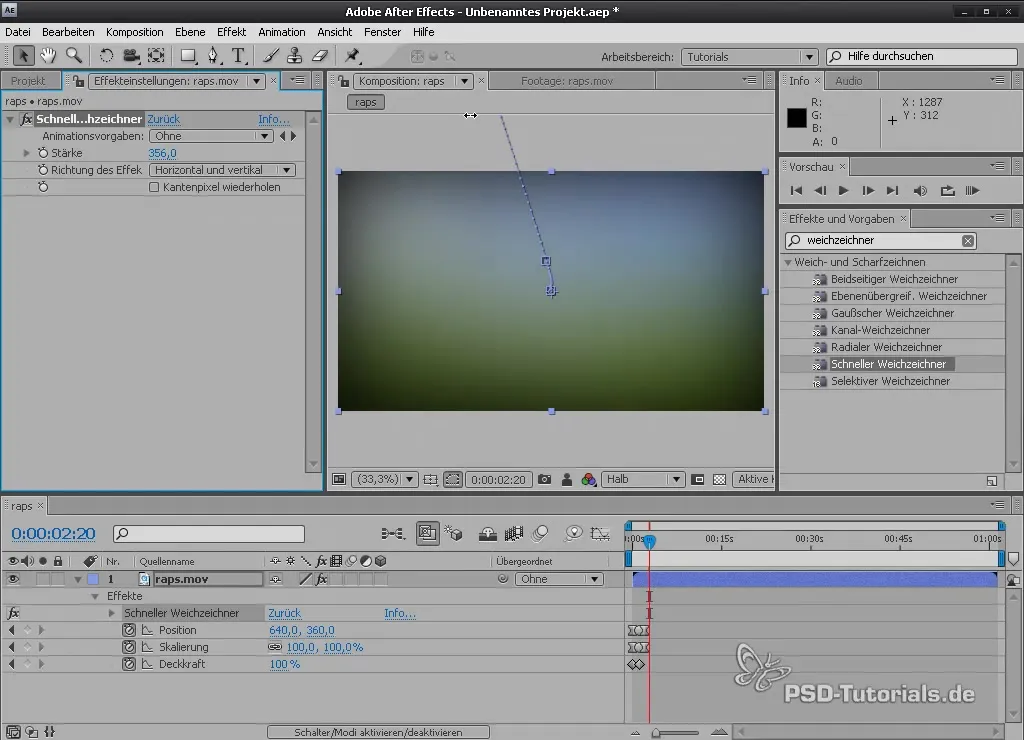
Animating Effects
An exciting feature in After Effects is the ability to animate effects. You can set keyframes to change the intensity of an effect over time.
Position the playhead at the start of your animation, select the parameter you want to animate, and activate the stopwatch to add a keyframe. Then go to the end of your animation and change the value.
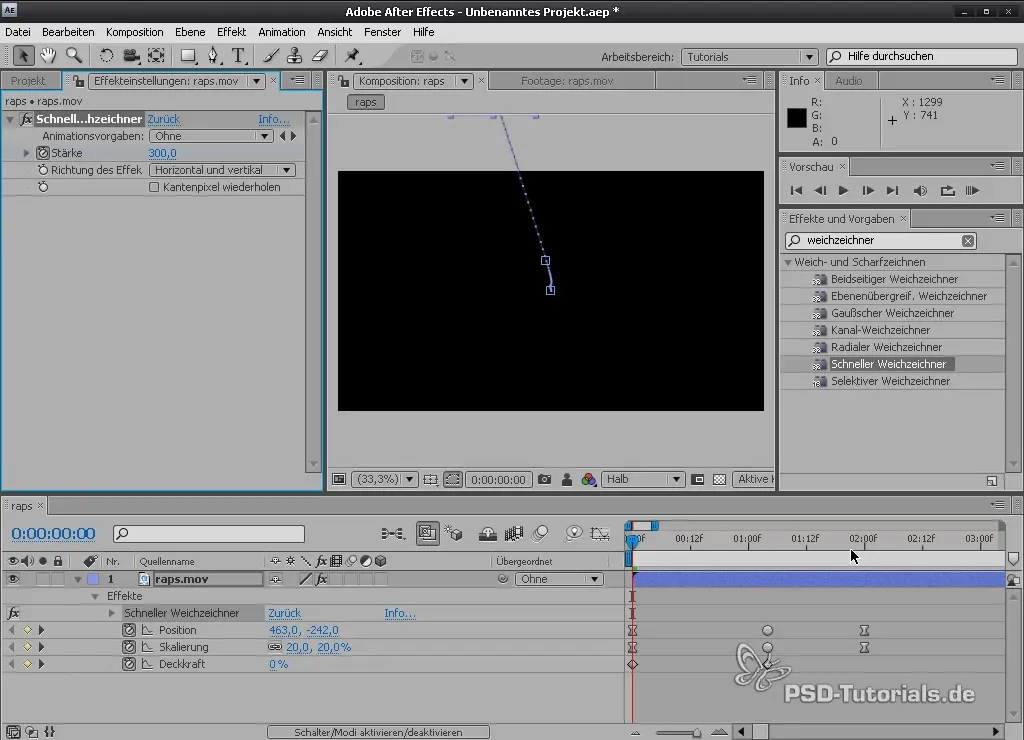
This adjustment results in a dynamic movement of the effect over time. By looking at the keyframes, you can easily check the progress of your animation.
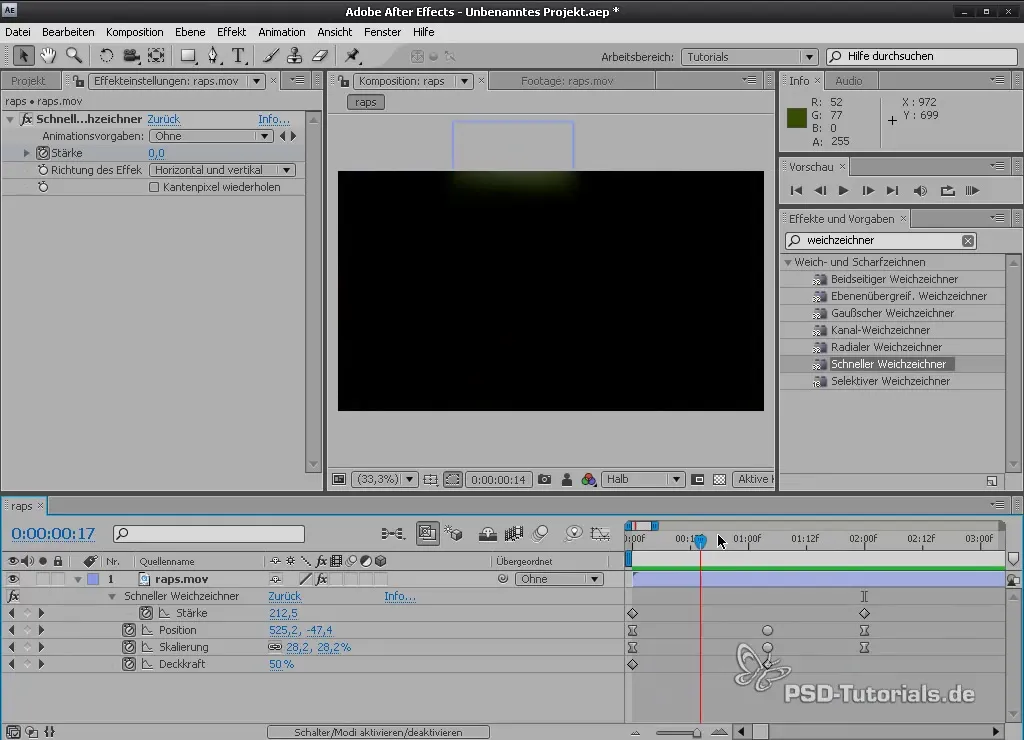
Making Color Corrections
Besides blurs, you can also apply color corrections. Select the layer and go to “Effect,” then “Color Correction.” Here you will find the hue/saturation effect. Activate the “Tint” option to make your color changes and choose a yellow or green tone.
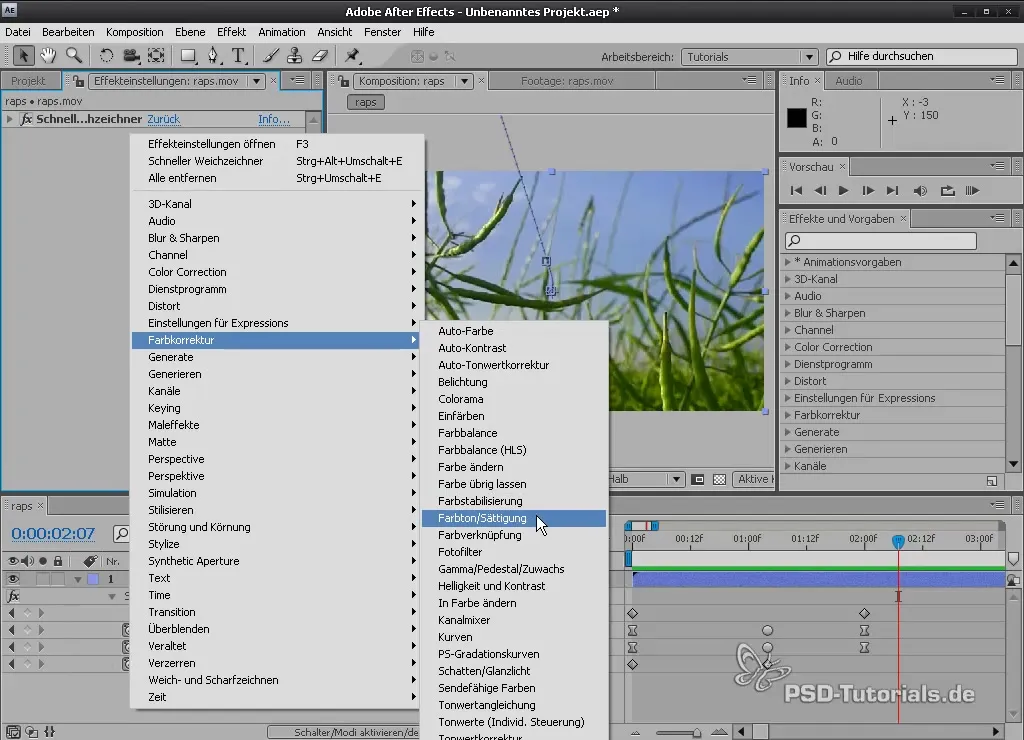
You can adjust the opacity using the “CC Composite” function to let the original image shine through.
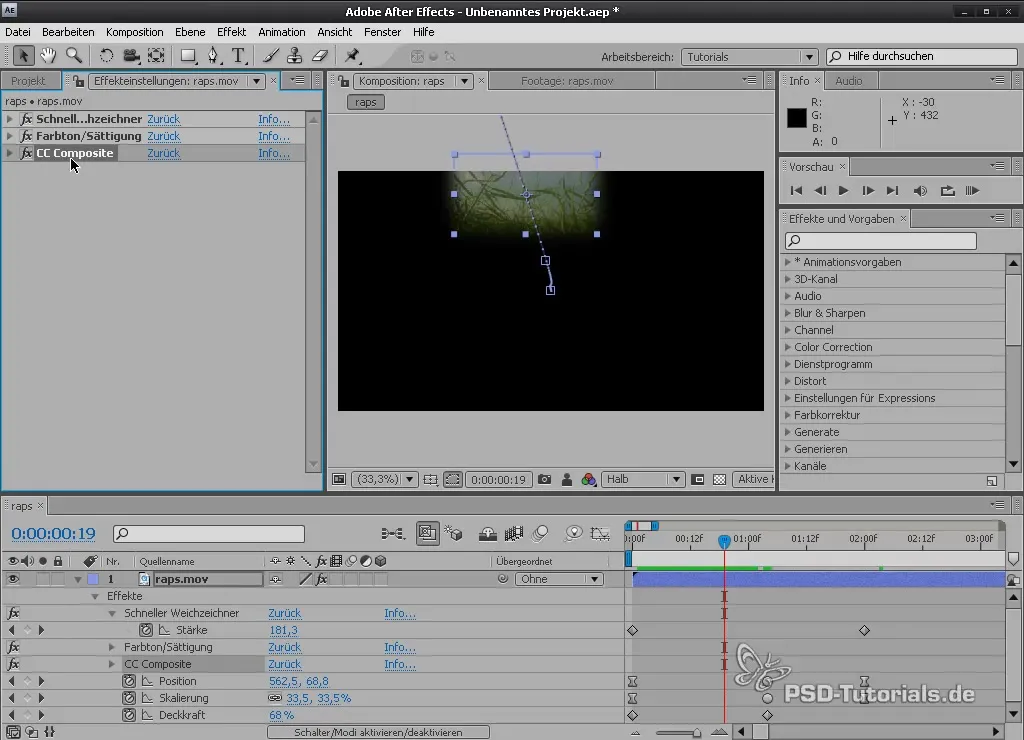
It is important to note that the order of effects is critical: for example, the blur should be applied last to correctly affect the hue.
Creating Adjustment Layers
Adjustment layers are a useful way to apply effects to multiple underlying layers. You can create a new adjustment layer by selecting “Layer” > “New” > “Adjustment Layer.”
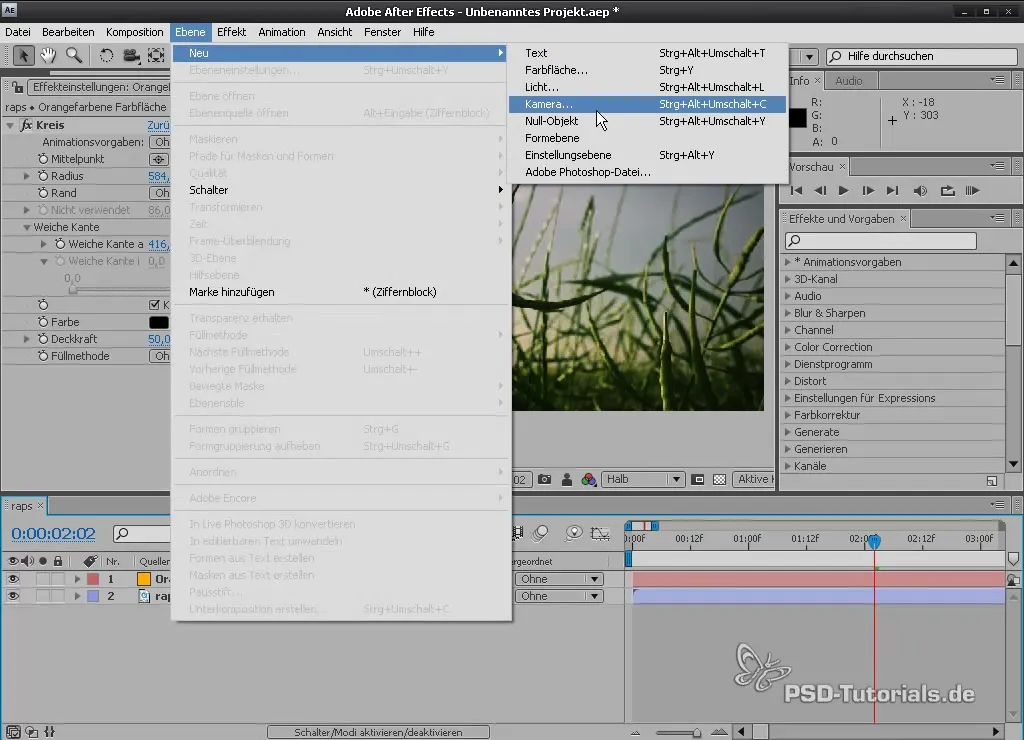
On this adjustment layer, you can apply effects such as black and white or color corrections. These changes will then affect all layers beneath the adjustment layer.
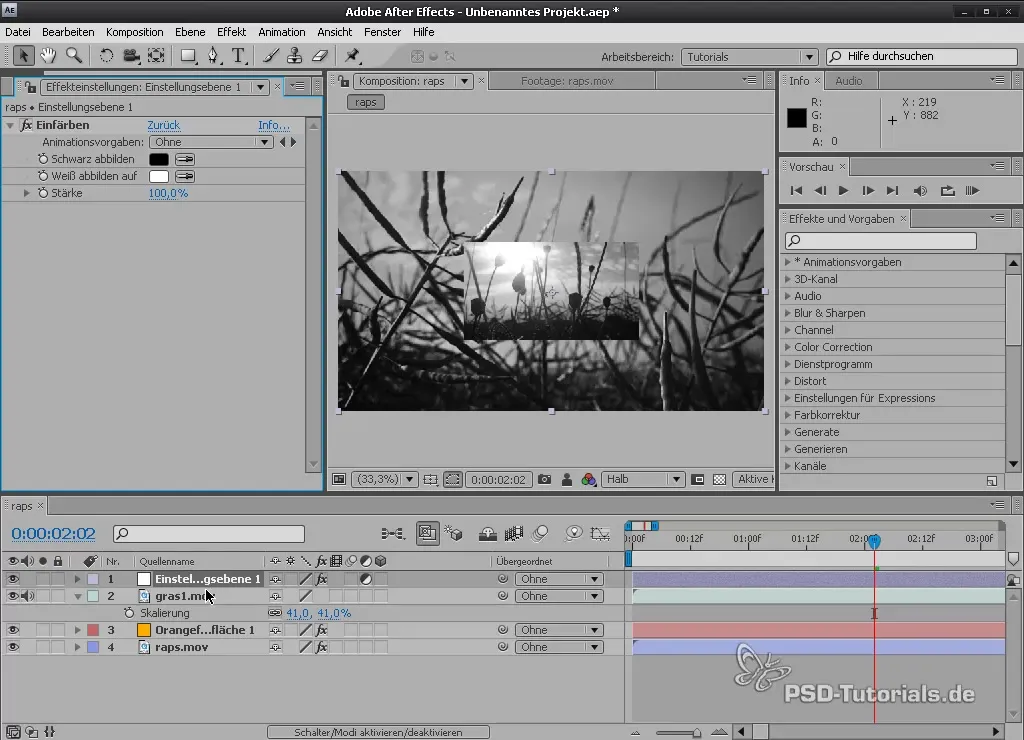
Combining Text and Effects
You can also create text layers and edit them with effects. Create a text layer and choose a font and color. Even a fast blur can be applied to text.
Set keyframes for the opacity or other effects to make your text appear dynamic.
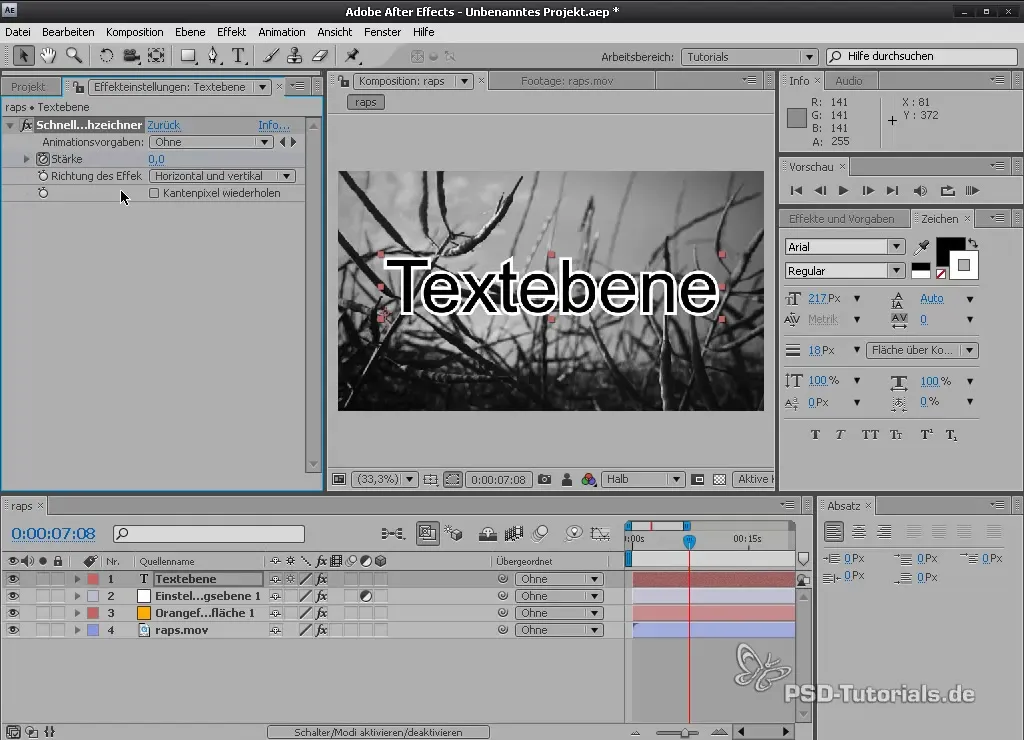
Summary - Effectively Using Effects and Adjustment Layers in After Effects
In this guide, you have learned the basics of effects and adjustment layers in After Effects. You discovered how to apply effects, animate them, and the role the order of effects plays. Additionally, you explored the ability to efficiently control multiple effects through adjustment layers. Use these skills to visually enhance your projects.
Frequently Asked Questions
What are the most important effects in After Effects?Important effects include blurs, color corrections, and stylistic filters.
How does an adjustment layer work?An adjustment layer applies effects to all underlying layers.
Can I animate text in After Effects?Yes, text layers can be animated with various effects, including blurring and opacity.
How do I set keyframes in After Effects?Click the stopwatch next to the parameter you want to animate to set a keyframe.
What role do effects play in video production?Effects are used to create visual styles and make the footage more engaging.
